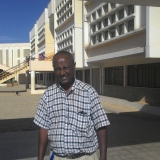So far Africa has benefited little from climate finance as compared to other continents with emerging economies. Climate projects are distributed unevenly across regions as well as among developing countries. This is partly due to lack of trained manpower in some of these countries and too restrictive criteria of most of the climate fund projects and programs that are designed to the disadvantage of Africa.
So far only about 3 percent of Clean Development Mechanism (CDM) projects UNFCCC accepted are under implementation in Africa and very few are in Sub-Saharan Africa. For instance, despite all the efforts there is only one CDM project in Ethiopia which reached implementation stage up to the year 2011. Africa has spoken loudly regarding some of these cases including explaining the shortcoming of CDM and other climate financing schemes. In response, from the Cancun meeting Africa has gained, among others, a decision that about 10 percent of the ‘fast-start’ finances have to be allocated to support agricultural adaptation projects in the most climate vulnerable countries. The recent climate financing targets of Global Environment Facility (GEF) also encompassed the development priorities of developing countries such as agriculture, forestry, and waste management. In addition, the High Level Advisory Group on Climate Change Financing has reported the possible sources of climate finance and states funding adaptation activities in Africa as one of the priorities, which can perhaps increase the share of Africa. Still, there is a need to harness climate finance in Africa, amidst the need for improving project criteria and institutional set up to enhance flexibility, effectiveness, and equity of the benefits distribution spatially across countries and along the chain. Furthermore, the climate finance criteria should be revisited to ensure the accountability and participation of local communities in decision making for sustainable climate protection.


